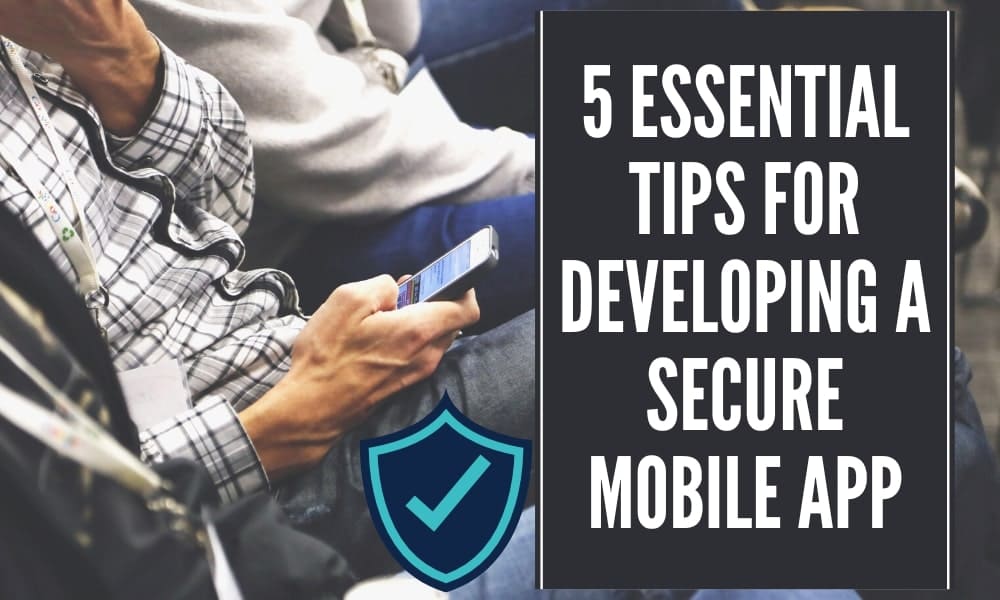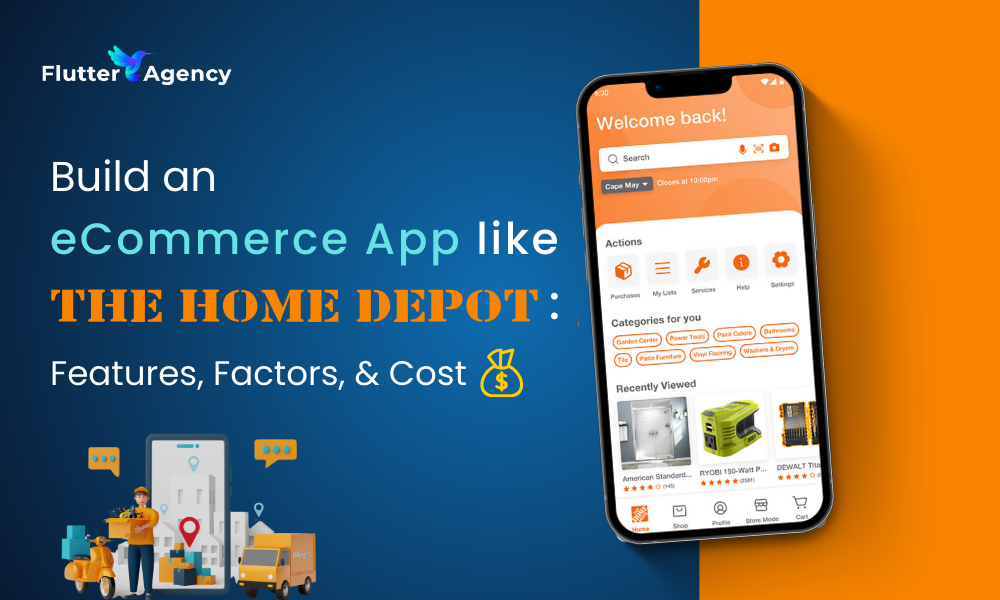5 Essential Tips For Developing A Secure Mobile App?
In this digital era, the market for mobile applications is seeing exponential growth. It is becoming increasingly common for large corporations and organizations worldwide to use mobile apps to improve customer service and workforce efficiency.
Even firms that have never utilized mobile applications are now embracing the technology. However, a critical concern that many organizations and customers continue to overlook is: Are mobile app secure?
Apps for mobile devices are the primary target for malicious behavior. While reaping the benefits of mobile apps, enterprises need to keep them secure. This blog compiles the top 5 security tips for mobile apps that may be used throughout the development process.
Tips to Ensure Security of Your Mobile Applications
#1. Secure the code of your application from the ground up
Mobile application security must be a principal focus, just like any other software project. Regarding web applications, data and software are on a server, while the client side is only an interface.
Native applications, on the other hand, keep their code on the device after they’ve been downloaded, making it easier for hackers to access them. Although much vulnerability may be found in an application’s source code, firms do not invest their security budgets in this area.
To have complete security, not only must the app itself be secure, but so must the network and data on which it is stored. When vulnerabilities are found in your app, they might result from a developer mistake or a lapse in code testing, or they can simply result from a breach targeting your app directly. To build an application for your organization always consider a trusted and professional company like Flutter Agency, to create application for Android & iOS devices.
Tips:
- Encrypt the app code to keep it safe. If you’re using obfuscation and minification, you’re not doing enough. Use API encryption and current, well-supported techniques.
- Run a vulnerability scan on the code or conduct a source code audit.
- Secure app code should be reusable across devices and operating systems and easy to update. After a security breach, you don’t want your users to be left without an update; therefore, make sure your code is as agile as needed.
- You should consider how much data and power your app uses while developing a secure app. Security is a priority, but it should not come at the expense of functionality or the overall user experience.
- You’re making a big mistake if you think your app is safe because an app store has approved it. Apps must be thoroughly tested and authorized as app store review processes are imperfect, and insecure native apps have previously been reported.
#2. Secure your network’s backend
To prevent unwanted access to data, networks and cloud servers used by APIs in an app must be protected with appropriate security controls. Access to APIs and people who use them should be authenticated to avoid eavesdropping on communications between the app and its server or database.
Tips:
- You may use containerization to store your data and documents in encrypted containers.
- You should hire a network security expert to do penetration testing and vulnerability analysis of your network to verify that the correct data is appropriately secured.
- VPNs, SSL, or TLS-encrypted connections, and database encryption provide further protection.
- Distributing resources among servers to prevent them from being all in one location and separating essential resources from users, sometimes with encryption techniques, is an advanced form of security known as Federation.
#3. Set up procedures for identification, verification, and authorization
Authentication and authorization technology, like APIs, helps users confirm their identity to an app, further strengthening login security.
Tips:
- Be cautious if your app’s operation depends on a third-party API. You’re putting your faith in their programming. Ensure that the APIs your application utilizes only provide access to the areas of your app that are absolutely essential to reduce the risk of exposure.
- OAuth2 has emerged as the de facto protocol for administering secure connections using one-time tokens customized to each user. Installing and modifying this framework on your authentication service will allow you to grant access privileges between clients and end-users by capturing credentials, such as two-factor SMS questions.
- Encrypted data sharing using JSON web tokens is quick and easy, making it perfect for mobile devices.
- One of the federation protocols for mobile devices, OpenID Connect, is a customized version of OpenID. With an ID token, users don’t have to register and check in at each site, saving time and effort.
#4. Secure consumer data and use mobile encryption
A mobile app’s code and data are saved on a device rather than a regular web application because of mobile devices’ varied performance, bandwidth, and functionality. The more data a gadget has stored locally, the more at risk it becomes.
Tips:
- Encrypting at-rest data with file-level encryption ensures that it cannot be deciphered if intercepted.
- Mobile databases should be encrypted to prevent eavesdropping.
- Design applications such that sensitive consumer information, such as passwords, credit card numbers, etc., is not kept directly on a device. They are stored in a secure, encrypted location to ensure their safety. For example, the keychain in iOS serves as a secured data store.
- Make key management a top concern; if keys and certificates are susceptible to hackers, even the most robust algorithm is rendered useless
#5. Establish a robust API security policy
A significant part of securing mobile apps is protecting their APIs. APIs are the conduits that allow data to move between apps, the cloud, and a wide range of users, all of whom must be validated and permitted to access that data. Because APIs are the primary carriers for data, activity, and content, they must be protected.
Conclusion
Mobile application security is undoubtedly a top worry for developers due to the increased possibility of illegal conduct. Hence, consumers are more suspicious about installing subpar applications. Hiring an experienced Flutter developers based on skills is essential to reduce the risk of security issues on your application. Hopefully, these recommended practices will help alleviate your concerns about how to build a safe mobile app for your consumers.
Contemporary ventures
Recent blog
ready to get started?
Fill out the form below and we will be in touch soon!
"*" indicates required fields













